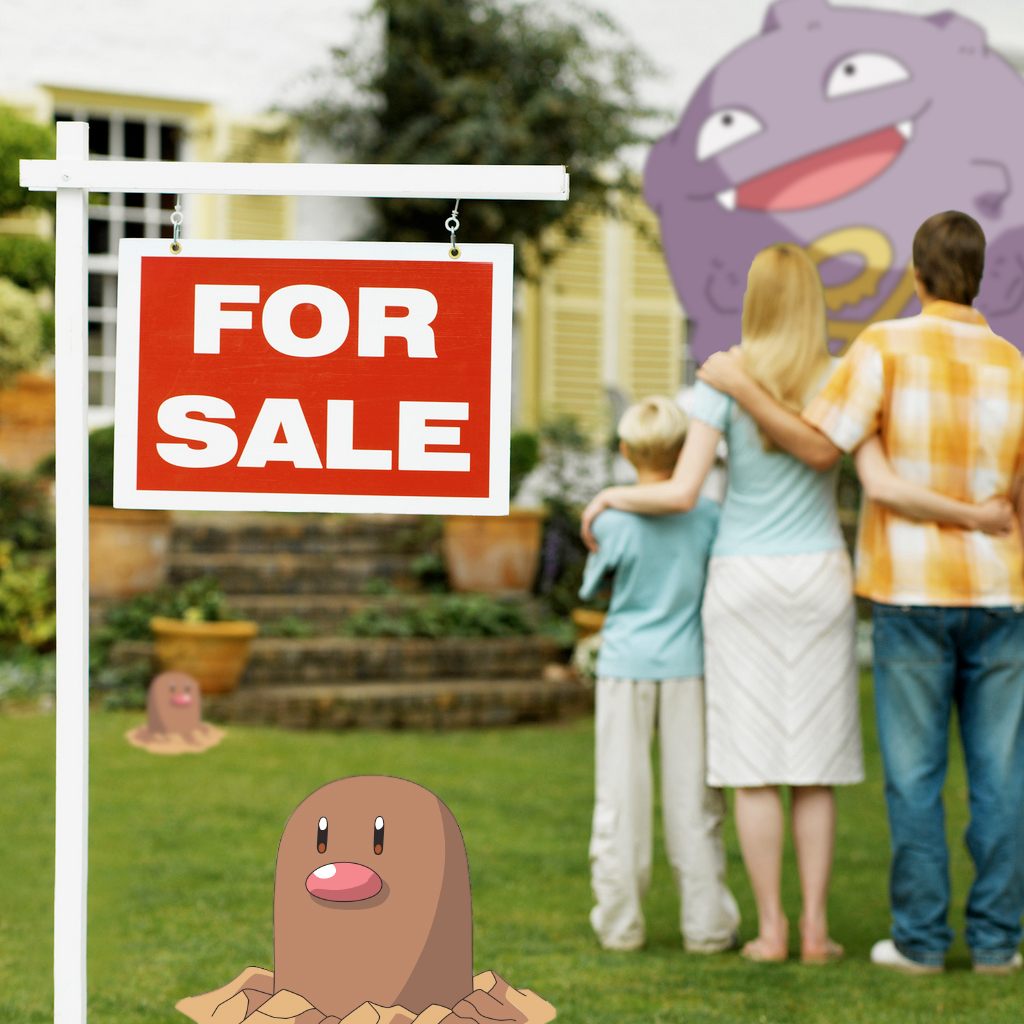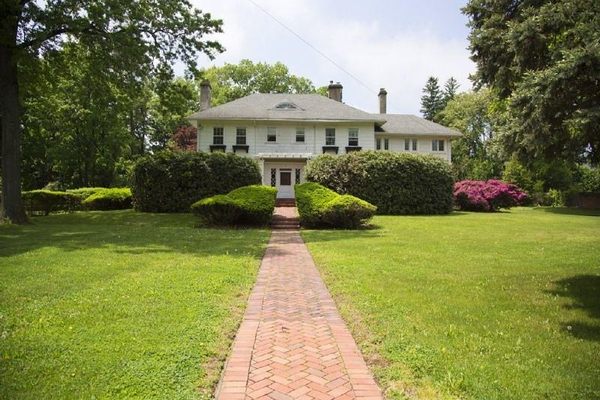People Are Already Using Pokémon Go as a Real Estate Selling Point
Who needs parking when you could live near a PokéStop?

The perfect house. (Photo: Mark Moz/altered by Eric Grundhauser/CC BY 2.0)
Over the past few days, the rise of Pokémon Go has shaken our civilization to its foundations. It has brought people together; it has torn people apart. It has made us question everything we thought we knew about public safety, job security, and freedom of speech.
But at least one question remains unanswered: will Pokémon Go affect the housing market?
How long until apartments within the radius of Pokemon stops command higher rental prices than those without
— Helen Rosner (@hels) July 10, 2016
The answer, it seems, is “it already has.” Enterprising housing mavens at all levels, from roommate-seekers to realtors, are drawing attention to their properties’ Pokémon-related assets.
Craigslisters in major cities have already begun using their proximity to gyms and PokéStops to lure potential new roommates. Two San Franciscans have an available room near an “awesome Pokemon spawn area!”, while a Cincinnati spot “has pokestops in range.”
At the end of a list of other conveniences, including basement storage and a community garden, a duo in East Williamsburg promises “there’s a Pokemon Go gym nearby.” Two Park Slopers recently edited their ad thusly: “**UPDATE: We live above a PokeStop, so if you are an aspiring Pokemon Go Master: Unlimited Razz Berries. Go crazy.**”
Sold! 😁😅😂#realtor #south #florida #miami #dade #broward #pokemon #go #buy #sell #rent #house #funny #real #estate pic.twitter.com/ni3OZOxnfb
— Carolina Larco (@Realtor_SouthFL) July 12, 2016
Other ads focus on available critters: “there’s a Lapras around sometimes,” note the current (human) residents of a four-bedroom in Quincy, Massachusetts. Perhaps most impressively, some Boston-area graduate students have used the game’s egg-hatching function, which gives you rewards for walking long distances, to turn their less-than-great location into a perk. “Walking [to Harvard or MIT] is like 35 minutes,” they write. “Good distance if you are on Pokemon Go!”
At least two apartment hunters are taking these amenities into consideration:
Hannah and I are actually discussing which apartments we’ve looked at have the most Pokemon around them I hate us
— maui (@maliahinz) July 12, 2016
Is Pokémon Go actually affecting the value of property? At least a few real estate agents are tossing Pokémon proximity out as an amenity. In British Columbia, one real estate listing appeared to advertise a single family home as “conveniently located between two Pokémon gyms and has 8 Pokéstops within walking distance.”
Being placed near Pokémon Gyms is now a selling point for a house.
— Ryan Brown (@Toadsanime) July 11, 2016
Jesus. #PokemonGO pic.twitter.com/Fpb97HTdVp
The current version of the listing, though, leaves out that crucial information. And the idea that a PokéStop could raise the value of a property $50,000 seems like wishful thinking at best:
Pokemon Go is having major implications in the real estate market pic.twitter.com/G8A88uGH0R
— Matt McDonough (@McDooogle) July 11, 2016
But at least one mom/real estate agent may see Pokémon as a real selling point.
My Mom is using #PokemonGo to sell real estate. I’m done.
— Marissa Young (@thegrandenigma) July 12, 2016
And in Redmond, Wash., a current real estate listing has “Pokemon Go gym <5m walk, 3 Pokestops within 7m walk” listed as an amenity. And one apartment complex in the East Bay, outside of San Francisco, is using the promise of PokéStops to lure potential renters (although the ad fails to specify the exact location of the promised PokéStop).
More appealing is this Nashville complex, which promises not just a PokéStop, but rare Pokémon. This place in Salem, Ore., has a Pincer. A community in Lansing is advertising its location as home to “LOTS of Pokemon that are waiting for the perfect trainer to catch them!” Across town, another complex will not be outdone: it is “Within a mile of several Pokémon stops and home of recently captured Paras, Shellder, Drowzee, Squirtle, Bellsprout, Odish and SO MANY MORE!”
A level-headed real estate adviser would probably say wait at least a week before choosing a place to live permanently based on its Pokémon amenities. But if there really are rare Pokémon there? Might be worth it.











Follow us on Twitter to get the latest on the world's hidden wonders.
Like us on Facebook to get the latest on the world's hidden wonders.
Follow us on Twitter Like us on Facebook